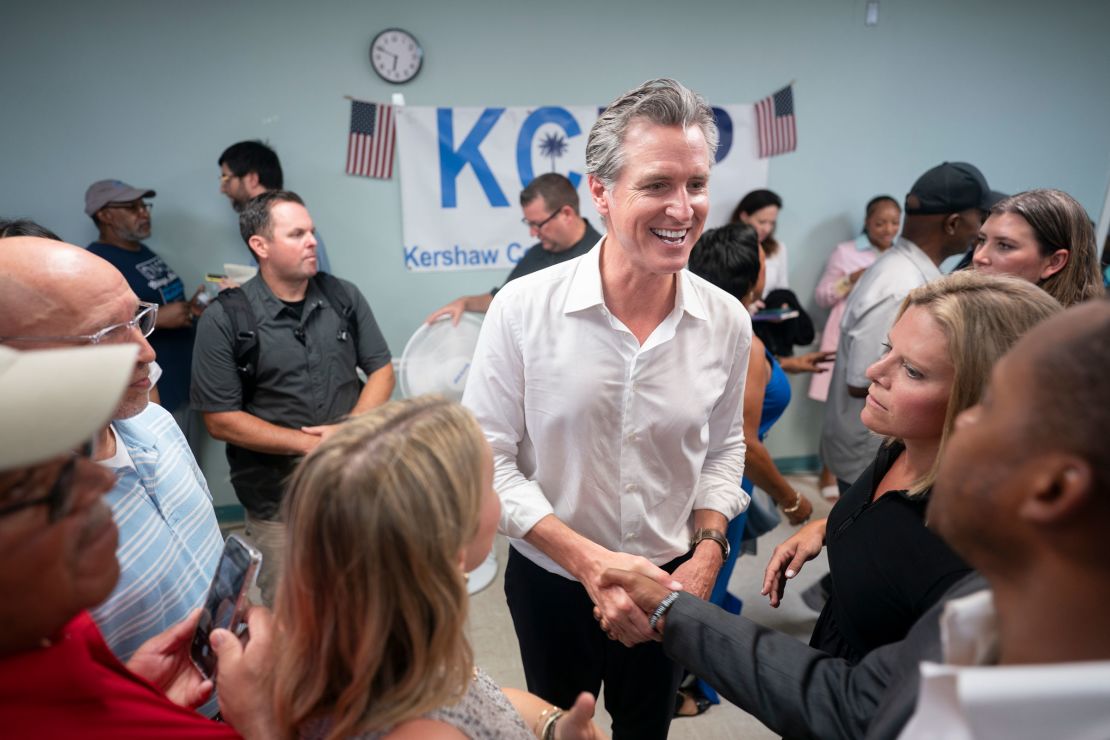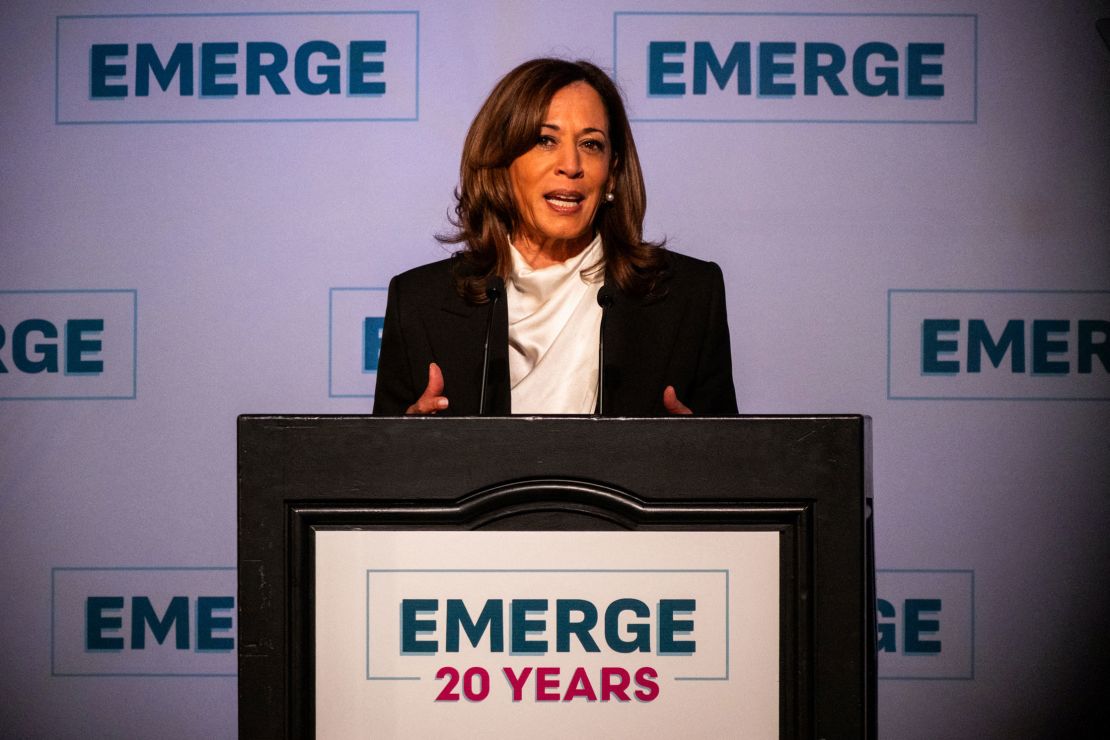Pete Buttigieg has ruled out a 2026 run for Michigan’s open Senate seat or governorship, signaling interest in a 2028 presidential bid.
The former Transportation Secretary announced his decision on X, stating he would instead focus on supporting candidates who share his values.
Political insiders told Politico this move preserves his chances for a future White House run, avoiding races that could tie him down.
Democratic strategist David Axelrod said a Senate win would “almost certainly” take Buttigieg out of 2028 contention.
Buttigieg previously ran in the 2020 primary and is currently second only to Kamala Harris in early 2028 speculation.
Commentator Mark Halperin noted potential challenges, pointing out Buttigieg’s stature and sexuality, suggesting they could affect perceptions of electability in a high-stakes race.
Democrats who will run for president in 2028 are already quietly, and not so quietly, making moves.
They’re visiting early primary states, workshopping material and formulating plans.
This week, it’s Kentucky Gov. Andy Beshear in South Carolina. Last week, it was California Gov. Gavin Newsom.
CNN’s Edward-Isaac Dovere is closely watching all of it.
We talked in DC about the list of potential candidates, their strengths and weaknesses, and what are the signs they’re actually serious about stepping in the ring.
The conversation, edited for length, is below.
Why pay attention now?
WOLF: The next general election isn’t until 2028. Why are we paying attention to this right now?
DOVERE: First of all, because some people want us to be paying attention. Gavin Newsom didn’t go to South Carolina just as any state to go to.
He picked a state — a presidential primary state — so that we talk about it, as others have done.
JB Pritzker was in New Hampshire at the end of April; Pete Buttigieg went to Iowa, even though it’s not quite a presidential state anymore.
This is an ongoing process of the candidates trying to get people to pay attention and to workshop some of their material.
But you also see among a lot of Democrats a deep desire to get past the Donald Trump era, even though the Trump era is still very new.
One of the things even that Newsom was saying in South Carolina was, ‘We can put an end to this in 18 months.’
He’s talking about the midterms, but it’s that thought that Democrats don’t need to just wallow in the horror and misery that they’ve been in since Election Day of 2024.

What are the early states to watch?
WOLF: Biden forced a lot of changes in the primary process for Democrats, including Iowa not really being an early state for them anymore. What’s the early map going to look like?
DOVERE: Biden did push through some changes, especially making South Carolina first.
But some of the other changes, particularly moving Iowa off of the early-state calendar, were very much supported by a lot of other people in the Democratic National Coalition.
We’ll see what the calendar ends up looking like.
The chances that Iowa gets back to a primary position seem very low.
That said, the chances that New Hampshire gets back to the first-in-the-nation spot that actually is required by New Hampshire state law seem much higher.
We won’t know the full answer on the calendar until at least sometime in 2026, and there is a lot of wrangling and back-and-forth among the states and among the DNC members.
What is definitely true, though, is that no matter what arrangement will come, it seems that New Hampshire, South Carolina and Nevada will remain early.
Where exactly they are is a little bit unclear.
Gavin Newsom
WOLF: Why could he win and why would he have trouble?
DOVERE: Newsom had a real breakout moment over the response to what was going on in Los Angeles a couple weeks ago, and that very quickly identified him in people’s minds as the face of the actual resistance to what Trump was doing, rather than just talking about it. He is a very skilled retail campaigner and speaker.
But there are obstacles he’ll have to overcome — people who think that he’s maybe too California.
He was the mayor of San Francisco, too liberal in some people’s minds. Too slick.
Just having a California air to him — all that stuff is what he needs to overcome.
Other than Kamala Harris, there’s never been a Democratic nominee from the West Coast.
Kamala Harris
WOLF: OK, Kamala Harris. Could she do it again in a crowded primary?
DOVERE: She’s obviously thinking about running for governor of California, and I’ve done reporting that says that she’s leaning in that direction.
What is also clear is that she and her closest advisers realize that it’s one or the other — you can’t run for governor and then turn around and run for president right away.
WOLF: Unless your name is Richard Nixon.
DOVERE: Well, he ran for governor in 1962, lost, and then didn’t end up running for president again until 1968. Her goal, if she runs, would be to win and not repeat the Nixon thing.

Pete Buttigieg
WOLF: Moving east, in the middle of the country, there’s JB Pritzker and Rahm Emanuel in Illinois; there’s new Michigan resident Pete Buttigieg and Michigan Gov. Gretchen Whitmer.
Let’s start with Buttigieg, someone who actually won an early contest in 2020.
DOVERE: The Bernie Sanders folks would still protest this, but Buttigieg did win the Iowa caucuses, and he came in a healthy second in the New Hampshire primary.
He has spent the first six months of Trump’s second presidency doing a lot of podcasts and outreach to what would be classified these days as the ‘manosphere,’ or the Republican-leaning or low-propensity voters.
He regularly is embraced by Democrats for the way that he’s able to break down Democratic arguments and break apart Republican arguments.
That said, his jobs leading up to now have been to be the mayor of a pretty small city — South Bend, Indiana. And then he was transportation secretary. But part of his theory from when he was running in 2019, and he and I talked about it then, was that we are living in an age of Donald Trump’s politics, where it’s more about what you’re able to do and how you’re able to communicate what you’re doing than about exactly what job you’ve had in government. Maybe that’s an opening for him. I think that most people assume that he would be a reasonably strong contender, at least if he runs.
Gretchen Whitmer
WOLF: Michigan Gov. Gretchen Whitmer is an obvious choice, but she’s said she’s not running.
DOVERE: A lot of people say they won’t run for president until they do. Barack Obama insisted he wasn’t running.
Whitmer has a lot of strength in Michigan, obviously a key state for Democrats. She’s won two tough races there by, in the end, pretty comfortable margins.
She is quite popular in Michigan, as far as one can be in these polarized times. And she has, in these first six months of Trump, taken a different route than a lot of other Democrats. She’s tried to find ways to work with Trump, and she feels like that is a good way of being the governor and also delivering for swing areas of the state.
Of course, that has frustrated a lot of Democrats who feel like she’s been used by Trump and turned into a prop by him, whether it was at the Oval Office when they had that meeting a couple months ago, or when he then flew to Michigan to announce this new shipbuilding investment and had her come to the podium. She would say she did get the investment, and it makes a big difference for Michigan shipbuilding.

JB Pritzker
WOLF: Let’s go across the lake to Illinois Gov. JB Pritzker, the only billionaire on the list, yes. Would the democratic socialist wing of the Democratic Party go for a billionaire?
DOVERE: I sat in New Hampshire at the end of April when Pritzker was there to speak to the big Democratic dinner there, and I asked him that exact question.
When there was such a push among a lot of Democrats against the wealthy and oligarchs and all that, how would they vote for a billionaire?
He said to me, it’s about values, and he feels like he’s been pushing the values.
He’s not apologetic about his family wealth. In fact, he says that he has used it toward helping other Democrats win, and through his personal political donations and a PAC he has put quite a few dollars into everything from state parties to specific campaigns to ballot initiative efforts.
His strength would be that he’s running for reelection now to a third term.
A lot of things that he has done as governor fall into the category of Trump-proofing the state, and some fall into the category of just trying to make the state a center-left laboratory for all sorts of things.
Rahm Emanuel
WOLF: There is a former mayor of Chicago who is clearly trying to set up the idea that he would run. Is Rahm Emanuel (a CNN contributor, former White House chief of staff, former ambassador and former congressman) actually serious?
DOVERE: He is talking about running more in terms of the concept of what he would bring to the argument, or to the debate of how Democrats should be moderate and how they should talk about things in a different way than in the normal way of a potential candidate.